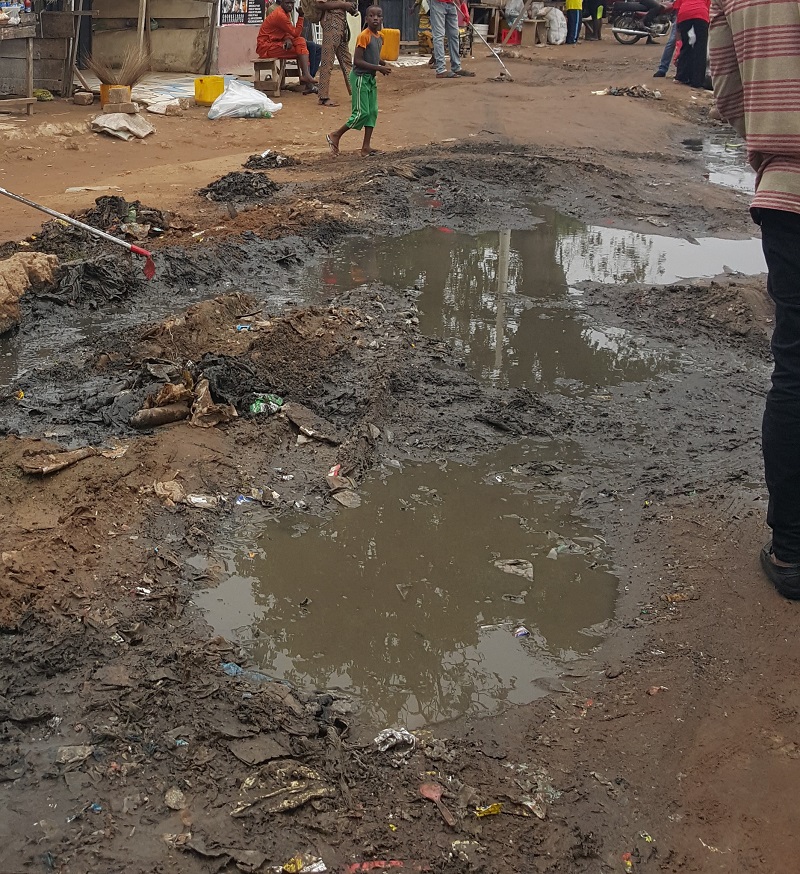
Human beings and the environment are co-dependent on each other but a lot of people in Nigeria are ignorant and oblivious of environmental responsibility, this makes environmental degradation a profound challenge which requires immediate attention. Environmental degradation is the deterioration of the natural environment through pollution, depletion of resources, habitat and ecosystem disruption and the eradication of wildlife leading to the reduction of the general health of the environment. The deterioration of the Nigerian environment should be a principal concern of young Nigerians as it has direct implications for health and well-being both now and in the future. The causes and effects of environmental degradation must be addressed and tackled because the environmentally friendly use of natural resources and environmentally sustainable economic growth improves lives. The Nigerian environment must be maintained and preserved for both present and future generations.
Most of Nigeria’s population is made up of young people, this implies that a large and energetic segment of the population will live longer with the consequences of environmental actions/inactions that the earlier generations have taken and are still taking. The anti-environmental ways of reasoning of past generations are not entirely ingrained in them meaning there are opportunities to make a lot of difference and take up the responsibility of maintaining the integrity of the environment that they will inherit. All over the world, environmental activists chant the climate change song, environmental issues are looming large; the Nigerian population is increasing steadily and this means that if current trends are allowed to continue, more people, industries, etc. will be contributing to environmental degradation.
Some major concerns related to environmental degradation in Nigeria that should be addressed are: climate change, biodiversity loss, extinction rates of endangered species, depletion of resources, pollution (air, land, water, noise and light), and waste management.
Most times, there is lack of commitment and engagement on the part of the people towards the myriad of environmental problems because no one takes it as a personal problem. Young people are the decision-makers of today and tomorrow, therefore, there should be an understanding of the effect of changes in the environment and how everyone can become involved in the issues and decisions. Environmental education is one way young Nigerians can be equipped to fight against these changes – along with an attitudinal change and the ownership of these environmental problems; there is no use passing the responsibility around as an excuse to live unsustainably. The environmental impact of developmental projects/activities embarked on by individuals, organizations and government in the various communities should be questioned and at the end of a project’s life cycle, ensure that proper remediation and reclamation activities are carried out to ensure the environment is restored to its former or other productive usable state. Young Nigerians should demand that manufacturers produce eco-friendly products, take responsibility for and minimize the environmental impacts of their routines and processes while ensuring that their products are environmentally sound. When a company is causing environmental deterioration/pollution in any way, young people should can raise petitions, lobby and carry out demonstrations that will be effective. Products manufactured by companies that are not environmentally friendly and do not care about their impact on the environment should be boycotted and if need be, peaceful protests can be staged to make these companies rethink their corporate strategies. Young people can and should demand that businesses operating in the country carry out their environmental responsibilities which should include clean-ups, environmental sanitation exercises, obligations to recycle, pollution prevention, and environmental impact assessments and reviews.

Most young Nigerians are not aware of the power of lobbying which means writing to Councillors and Local Government Chairmen to let them know how a particular action affects the daily life – a major advantage is that this is a time when there is better access to information than previous generations. Also, the young people who work in companies and industries that impact the environment can introduce fresh ideas and outlooks which they can adapt to their production processes and products to comply with environmental protection policies and best practices. Another way to make meaningful contributions in various communities is to form groups and associations to care for and protect habitats that are peculiar to these communities from been destroyed or polluted, examples of such habitats are forests, mangroves, beaches, freshwater, etc. Such groups and associations can initiate programmes to promote participation in tree planting, forestry, combating desert creep, waste reduction, recycling and other sound environmental practices which the government can also be involved in.
It is no secret that there are a lot of policies, rules and conventions in Nigeria made for environmental protection, but there is a lack of effective implementation; to achieve this, the younger generation has to rise to the challenge. The environment is one of the most important and accessible areas of politics and this means, it should be one of the first sections to be tackled with regards to inclusion and sustainable development. Young people should demand for policies that protect the environment and clamour for more participation in the decision-making process of environmental concerns. They have to be involved in matters that affect the environment, where informed opinions will be developed based on improved knowledge, recent technologies and better strategies regarding environmental protection can be aired.
Young Nigerians in the 21st century all have a role to play in preventing environmental degradation by actively getting involved in environmental management, preservation and conservation, which will have direct impact on the current and future standard of living. High level of activism is needed to get effective responses to the current environmental challenges the nation faces. There is increasing awareness of these challenges and they have a greater stake in long-term sustainability; participation in, commitment to and active involvement in environmental issues is critical to sustainable development. The resources available (education, information, networks etc.) should be used to address the challenges posed by environmental degradation. Raising awareness, involving and empowering the younger generation is at the heart of the response to environmental degradation.
Article Contributed By: Adesuwa Obasuyi






Leave a Comment